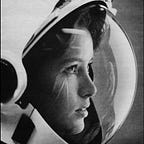The Truth You Don’t Want to Hear
What the laws of nature really tell us about free will
Among the greatest mysteries of the universe — dark matter and God, singularities and the beginning of time — there is the question of free will. It is an essential aspect of the human experience, this needing to have control over one’s own destiny and this feeling that all our decisions do matter. Free will contributes to the idea that the future is as yet unwritten and there is still room to create whatever world we want for ourselves. There have been philosophical debates and there have been neurological debates over whether or not we can make conscious decisions.
Perhaps the most famous neurological experiment was that of Benjamin Libet: participants were asked to press a button and, using a timer, make note of when they first made the conscious decision to move. Electrodes attached to their heads would meanwhile monitor the participant’s brain activity. Results showed that unconscious brain activity made the decision to press the button about half a second before the conscious decision was made, meaning that our brains make choices which we later tell ourselves were conscious and deliberate. Though the experiment is controversial, it is also widely-cited and often used as evidence against free will.
